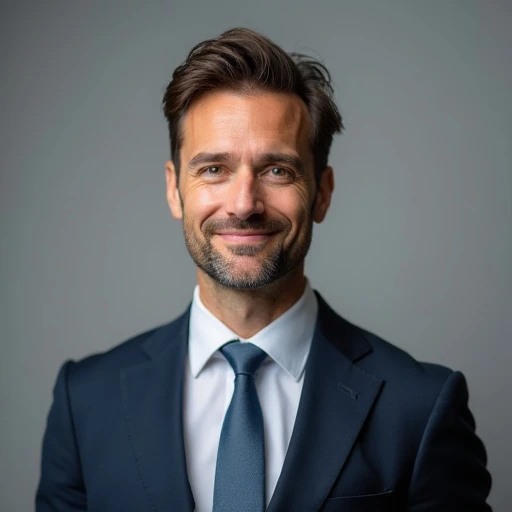In the world of high-end real estate, a new metric is gaining prominence, shifting the focus from purely financial gains to emotional satisfaction. According to Ziad El Chaar, CEO of luxury developer DarGlobal, the ultra-wealthy are increasingly motivated by a “return on ego,” a concept that prioritizes exclusivity, identity, and recognition over traditional investment returns.
Speaking at the Fortune Global Forum in Riyadh, El Chaar explained that this desire for rarity is reshaping how luxury properties are developed and marketed, particularly in the booming markets of the Middle East.
Key Takeaways
- Luxury real estate is now driven by what is termed a "Return on Ego" (ROE), focusing on emotional and social capital for buyers.
- The global luxury market is projected to grow from $327.52 billion in 2024 to over $480 billion by 2033.
- The Gulf region, including Dubai and Saudi Arabia, is becoming a new epicenter for high-net-worth individuals and luxury development.
- Co-branded properties, such as those with Aston Martin or Trump, are a key strategy to deliver the exclusivity demanded by affluent consumers.
- Saudi Arabia's Vision 2030 reforms, including allowing foreign freehold ownership, are set to accelerate this growth.
The Shift from Investment to Identity
For decades, real estate has been viewed through the lens of Return on Investment (ROI). Buyers and investors calculated potential appreciation, rental yields, and long-term financial benefits. However, in the upper echelons of the market, this calculation is changing.
Ziad El Chaar argues that today's affluent consumers are chasing something less tangible but equally valuable. “In the luxury segment, we always say we’re giving you a lot of ROE: A return on ego,” he stated during his address. This concept frames luxury purchases—be it a limited-edition watch or a branded residence—as a means of defining one's identity and status.
This trend is about acquiring assets that are not just valuable, but also rare and aspirational. DarGlobal has capitalized on this by partnering with prestigious brands to create what El Chaar calls the “limited edition of real estate.” These co-branded developments offer a level of exclusivity that standard luxury properties cannot match, directly appealing to the buyer's sense of self.
The Gulf Emerges as a Luxury Powerhouse
While Europe has long been the traditional heartland of luxury, the industry's center of gravity is now shifting eastward. The Gulf Cooperation Council (GCC) region is rapidly transforming into a global hub for wealth and high-end living, driven by a unique combination of factors.
“In the Gulf, we have almost the perfect formula. Infrastructure, governance, lifestyle, safety, and speed. This region is ready to be treated as one ecosystem of gateway cities—from Riyadh to Jeddah to Dubai to Abu Dhabi to Doha.”
The numbers support this view. Dubai has already established itself as a leading destination for the wealthy, attracting nearly 10,000 new millionaires in 2025 alone. Saudi Arabia is following a similar trajectory, with projections showing the Kingdom could attract 2,400 high-net-worth individuals in the same year, an 800% increase from 2024.
Market Projections
The Saudi Arabian real estate market generated an estimated $132.3 billion in 2024 and is forecast to reach $201.4 billion by 2030. This growth is significantly bolstered by economic reforms under Vision 2030.
This influx of wealth is fueling unprecedented demand for luxury goods and experiences. A 2025 study by McKinsey found that consumers are increasingly seeking out luxury experiences over just physical goods, a trend that high-end real estate developments are perfectly positioned to meet.
Vision 2030 and the Future of Saudi Real Estate
A key catalyst for this regional boom is Saudi Arabia's ambitious Vision 2030 plan. A landmark reform within this plan will allow freehold property ownership for foreigners starting in 2026, a move expected to unlock significant international investment.
Understanding Freehold Ownership
Freehold ownership grants the owner complete rights to the land and the buildings on it in perpetuity. This is a significant change from leasehold systems and makes direct foreign investment in Saudi property far more attractive and secure.
Even before this law takes effect, the market is showing strong international interest. DarGlobal, which has invested over 20 billion riyals (approximately $5.3 billion) in its projects, has already sold properties in Riyadh and Jeddah to investors from 40 different nationalities.
The company's portfolio in the Kingdom includes high-profile projects like the Trump Tower and Trump Plaza in Jeddah, as well as the Mouawad-designed Neptune villas in Riyadh. These developments are not just about providing housing; they are designed to become cultural and economic anchors for their cities.
El Chaar emphasized the importance of integrating these communities into the urban fabric. “You’re not going to go and build a remote community and build walls around it,” he explained. “You have to put it in a place where it serves as an anchor for the city, as the image of the city.” He pointed to the Diriyah Gate development in Riyadh as an example of an inclusive project that caters to the ultra-wealthy while also providing entertainment, retail, and cultural spaces for the wider public.
A New Ecosystem of Destination Cities
Looking ahead, El Chaar envisions the entire Gulf region operating as a single, interconnected luxury market. He draws a parallel with established European destinations, suggesting the region has the potential to host multiple world-class cities.
“Just like Italy has at least 10 destination cities, we deserve in the Gulf to be looked at as one region with at least 10 top destinations,” he remarked. With a combined economy slightly larger than Italy's, the GCC's dynamism, modern infrastructure, and stable governance give it a distinct advantage.
As the global definition of luxury continues to evolve, focusing more on experience, identity, and exclusivity, the Gulf's strategic investments and forward-thinking policies are positioning it as the industry's next major frontier. The concept of a “return on ego” is no longer a niche idea but a central driver of this transformation, shaping skylines and attracting a new generation of global wealth.





